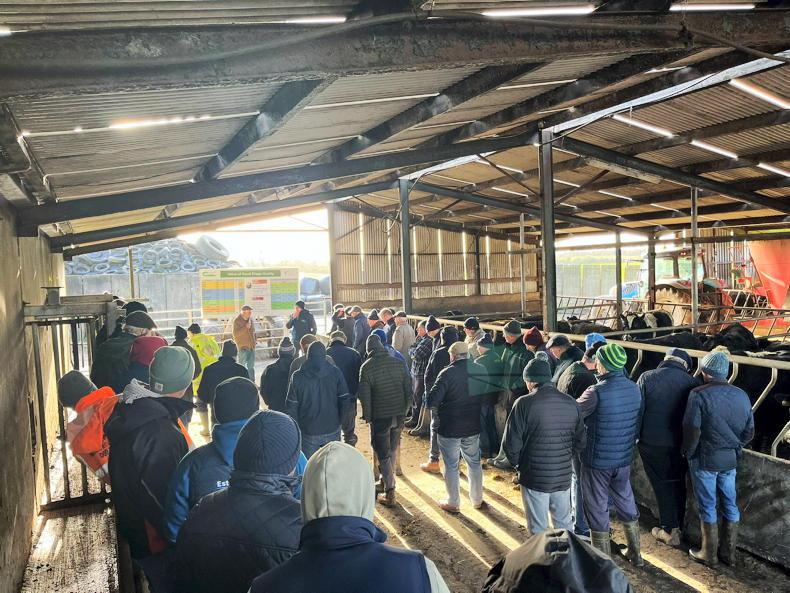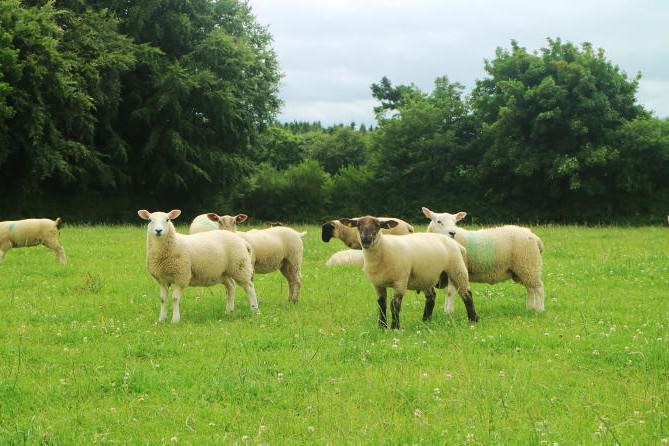Cobalt supplementation
There are some early signs of cobalt deficiency being seen in lambs, with problems generally starting to emerge from July onwards.
The characteristic signs start with lambs performing below target and in many cases the lamb’s ears will become scaley or scabby, with skin flaking away.
Characteristic symptoms of an acute deficiency include lambs going dry in the wool or starting to pine away despite being on a good plane of nutrition.
Lambs generally have a requirement for about 1mg of cobalt daily, and as sheep do not have the ability to store cobalt they must acquire it on a regular basis via their diet or supplementation.
If administering an oral drench, then the best balance between labour input and preventing issues is to administer every two to three weeks.
Treatment will typically cover two weeks, but there will not usually be a major fall off in performance if the repeat treatment extends to three weeks. Where administering a bolus it is important to take care, as the lining of a lamb’s throat can become easily damaged.
Startect availability
The sheep wormer Startect, which was launched in 2012 but which became unavailable in the subsequent years, has been reintroduced to the market in Northern Ireland. The product is currently not available via Irish wholesalers.
Zoetis, manufacturers of the sheep wormer, state there are no immediate plans to reintroduce it to the Irish market. The product is, however, licensed for use in Ireland and as such vets can purchase it from a wholesaler based in Northern Ireland.
Startect is licensed as a broad spectrum anthelmintic for the treatment and control of mixed gastro-intestinal and lungworm nematode infections and associated diseases of sheep.
It is a combination product which contains the relatively new active derquantel, a Group 5-SP Spirondole, and a Group 3-ML macrocyclic lactone.
The product could be very beneficial to farms with known resistance issues, as it provides another active ingredient to add to your worm control programme.
It is also beneficial as a quarantine treatment to reduce the risk of introducing worms, which are resistant to the main anthelmintic classes, on to a farm.
Your vet will be best placed to discuss options on sourcing product and putting a robust worm treatment programme in place.
Weighing accuracy
Last week’s discussions on the variability seen in the kill-out of lambs at present was a topic of conversation at a group meeting this week.
A number of farmers at the meeting highlighted the importance of carrying out regular checks to ensure the weighing scales is calibrated and weighing accurately.
This is particularly important where a scales may have been stored away for the winter. Some areas in which faults or innacurate weights often occur are the weighing mechanism, i.e. load bars/scales, or where the free movement of the cage is restricted.
A quick check can involve weighing 25kg bags of meal or a bag of fertiliser, mineral lick buckets or an item where the weight is known.
The weight applied should be at least similar to the weight of lambs being weighed, and it is also wise to check if there is any fluctuation between weights depending on where items are left on the scales.










SHARING OPTIONS